Linux
Latest
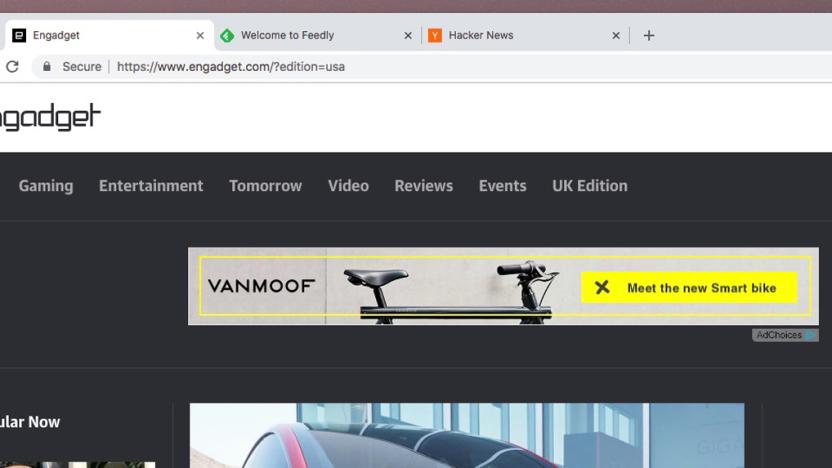
Google's refreshed Chrome design is nearly here
Chrome's design has remained largely the same for a long time, but earlier this year Google started hinting at a complete "Material Design" overhaul. Now, we've got a better idea of what this might finally look like. As the company gets even closer to updating the browser's UI, it's today rolled out an update to Chrome Canary on Windows, Linux and Chrome OS that enables the new Material Design UI by default.
Rachel England07.11.2018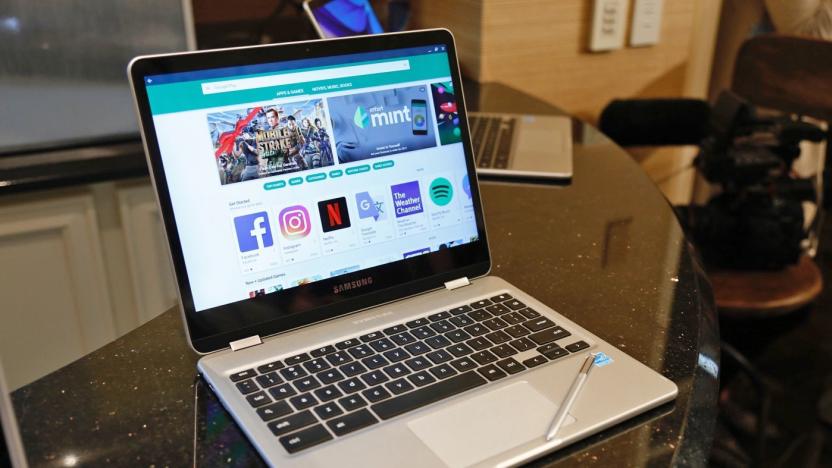
Samsung’s Chromebook Plus can run some Linux apps
If you've been hankering to play Minecraft on your Chromebook Plus, you now might be able to without a full Linux installation. At Google's I/O developer conference last month, the company said that Chromebooks will soon support Linux apps. That opens the machines up to a whole range of new tools and functions, and can make them vastly more useful in all kinds of ways. Google's own high-end Pixelbook was the first system to get Linux app support, and now it's coming to Samsung's Chromebook Plus -- albeit in unofficial fashion.
Kris Holt06.05.2018
Tesla releases source code for some of its in-car tech
Tesla doesn't have many fans in the open source crowd. It based its car platforms on open platforms like Linux and BusyBox, but it has gone years without sharing the source code their license (the GPL) requires. The company is finally setting things right, though -- more or less, that is. It has posted the source code for both the material that builds the Autopilot system image as well as the kernels for the Autopilot boards and the NVIDIA Tegra-based infotainment system used in the Model S and Model X. While they don't represent the absolute latest code, Tesla is promising to keep pace with newer releases.
Jon Fingas05.20.2018
Chromebooks will soon be able to run your favorite Linux apps
Chromebooks have always generally been cheap and accessible, but now they're about to get a lot more capable. Google announced today that Chromebooks will soon be able to run native Linux apps in addition to the Chrome web apps and Android apps that they already support. Not surprisingly, Google's own premium Pixelbook will be the first to get Linux app support, though we're told other models will join in before long.
Chris Velazco05.08.2018
Chrome learns to mute sites based on your web history
Right now, your web browser's response to auto-playing content tends to take one of two extremes: either it mutes everything or blasts your ears. But there are some times you do want sound right away, such as a livestream or a game -- do you have to remember to turn sound on every time there, too? Google doesn't think you have to. The latest version of Chrome automatically mutes and plays tabs based on your browsing history. If you tend to slap the mute button most of the time on a given site, Chrome will eventually provide blissful silence all on its own. Let the audio flow on a regular basis, however, and Chrome will know to leave that site alone.
Jon Fingas05.03.2018
Valve is 'still working hard' on Steam OS, Linux gaming
A few days ago Valve reworked the main navigation bar in its Steam Store and removed a direct link to buy Steam Machines, the Linux-based boxes it hailed as an open alternative to macOS or Windows PC gaming. Combined with a lack of recent announcements people figured that meant the end of the project, but Valve employee Pierre-Loup A. Griffais says that's not so. It was removed based on user traffic, which isn't surprising considering the lack of post-2016 hardware being offered. In a post to the Steam for Linux page, he explained the current state of things: While it's true Steam Machines aren't exactly flying off the shelves, our reasons for striving towards a competitive and open gaming platform haven't significantly changed. We're still working hard on making Linux operating systems a great place for gaming and applications...We also have other Linux initiatives in the pipe that we're not quite ready to talk about yet; SteamOS will continue to be our medium to deliver these improvements to our customers, and we think they will ultimately benefit the Linux ecosystem at large. The plan moving forward includes more work on the Vulkan graphics API everywhere, including now on macOS and iOS, while also making sure it's well-supported on Linux so that performance is up to par. It's not clear what those other Linux initiatives in the pipe are exactly, but hopefully, we'll hear about them sooner rather than later.
Richard Lawler04.05.2018
Firefox can block pesky site notification requests
Website push notifications can be helpful. The way you're asked to enable those notifications? Not so much -- the constant requests can drive you up the wall when you're just trying to check the latest news. Mozilla is coming to your rescue. Its newly released Firefox 59 for the desktop gives you the option to block notification requests. You can also tell the browser to block requests to use your hardware or location, for that matter. You'll have to dig deep into the settings (it's under permissions) to turn these features off, but they should make your web surfing relatively hassle-free.
Jon Fingas03.13.2018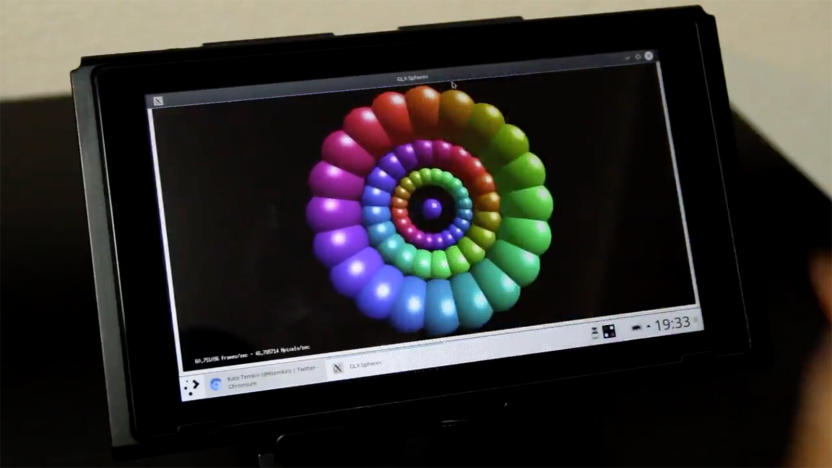
Modders turn Nintendo Switch into a full-fledged Linux tablet
For all of its Nintendo customizations, the Switch is ultimately a tablet running a garden variety NVIDIA Tegra processor -- and that means it can potentially handle the same software as other mobile devices. To prove that point, the fail0verflow team has shown a Switch running an honest-to-goodness Linux distribution. The touchscreen, networking and accelerated 3D graphics are all functioning, as evidenced by the modders tweeting from the Switch and running a benchmark. You're not about to run Steam games on it (many Linux apps aren't built for ARM-based chips), but you could theoretically use the Switch as a basic computer.
Jon Fingas02.20.2018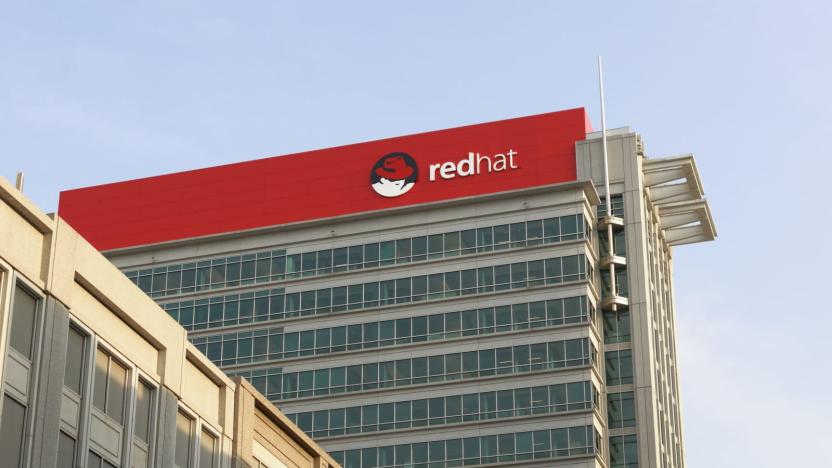
Red Hat buys the creator of a Chrome-based OS for servers
The underpinnings of Chrome OS have found their way into the server room in a very roundabout way. Red Hat has acquired CoreOS, the creators of an operating system for containerized apps (Container Linux) that shares roots with both Google's Chromium OS project and Gentoo Linux. The $250 million deal promises to help Red Hat fulfill its dreams of helping people use open code to deploy apps in any environment they like, whether it's on a local network or multiple cloud services.
Jon Fingas01.31.2018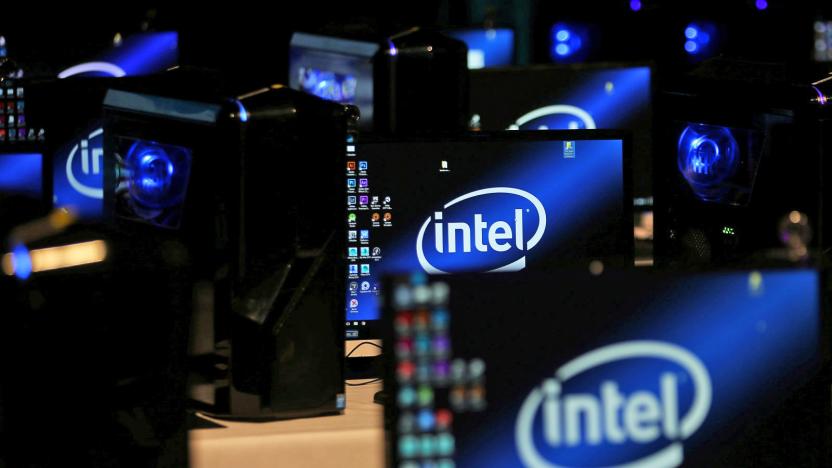
Fix for Intel's massive CPU security flaw might slow down your PC
Intel is grappling with another major security flaw in its processors... and this time, the cost of fixing it may be very steep. Researchers have discovered a design vulnerability in Intel CPUs over the past decade that covers the ability of ordinary programs to determine the content or layout of protected kernel memory (i.e. areas reserved just for the operating system). While the details appear to be under embargo for now, the fix is to completely separate the kernel memory from those ordinary processes. That could carry a significant speed hit, since it requires switching between two memory address spaces every time there's a system call or a hardware interrupt request.
Jon Fingas01.03.2018
Spotify made it easier to install its app on Linux
According to Canonical, the company behind popular Linux distribution Ubuntu, Spotify just made it super simple for subscribers to install the music-streaming app on Linux machines. The company has just released a Spotify "snap," a universal app package that works across Linux flavors.
Rob LeFebvre12.20.2017
Munich ends its long-running love affair with Linux
When Munich decided to ditch many of its Windows installations in favor of Linux in 2003, it was considered a groundbreaking moment for open source software -- it was proof that Linux could be used for large-scale government work. However, it looks like that dream didn't quite pan out as expected. The German city has cleared a plan to put Windows 10 on roughly 29,000 city council PCs starting in 2020. There will also be a pilot where Munich runs Office 2016 in virtual machines. The plan was prompted by gripes about both the complexity of the current setup and compatibility headaches.
Jon Fingas11.26.2017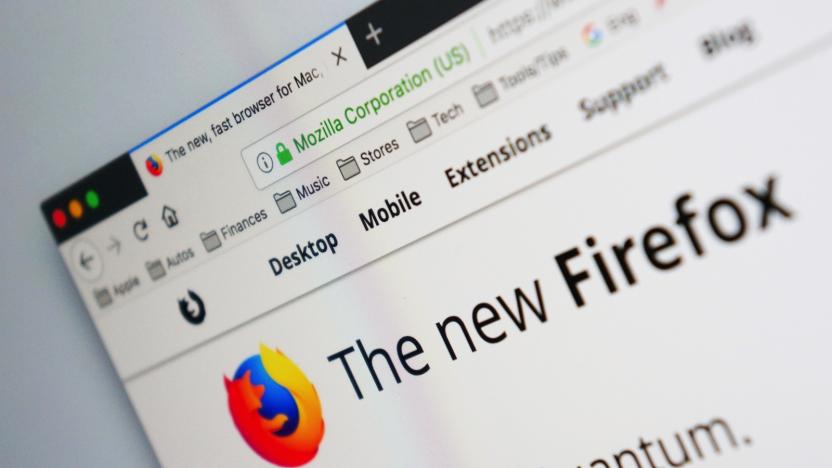
Firefox Quantum is ready to speed up your web browsing
Did you ditch Firefox a while ago after feeling that it was slowing down compared to rival browsers like Chrome? Mozilla is determined to win you back. As promised, it just released Firefox Quantum (aka Firefox 57) -- and it promises to be much faster than you're used to. The company claims its newest browser is over twice as fast as the version from 6 months ago thanks to both a new, multi-core CSS engine, tab prioritization and the elimination of bugs that were weighing the software down. Whether or not it's actually faster depends on the sites you're visiting, but it does appear snappy in some quick testing.
Jon Fingas11.14.2017
Google built a spatial audio kit for games and VR
Immersive audio is particularly important in an era where games are mainstream and virtual reality is quickly catching on, but there isn't a common framework for it. What works on your PC may be useless on your phone. Google wants to fix that: it's launching Resonance Audio, an open source developer toolkit that brings spatial audio to games, VR, AR and 360-degree video across many devices and platforms: Android, iOS, macOS, Linux and Windows are all covered. The technology borrows from Google's VR Audio kit to spatialize "hundreds" of 3D sound sources in real time, even on low-powered hardware like your smartphone. And depending on where it's running, it can even produce clever effects with a relatively low performance hit.
Jon Fingas11.06.2017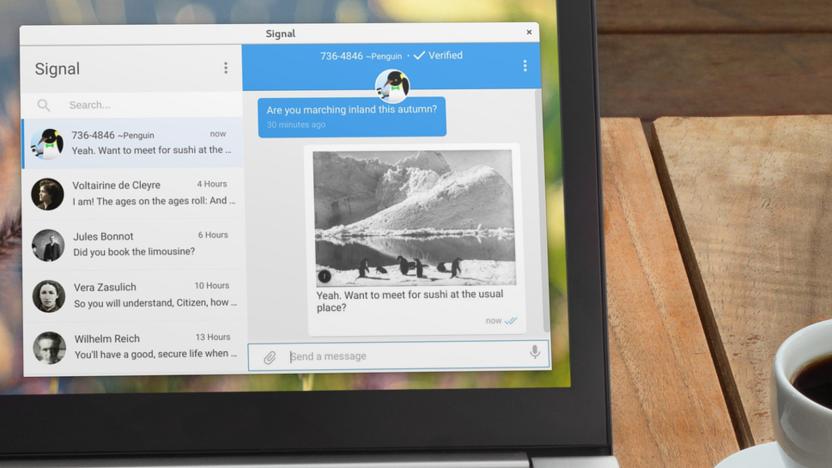
Signal's secure messaging is now available in a desktop app
You can already use Signal for secure chats on the desktop, but you've had to use a Chrome web app to participate in those encrypted conversations. What if you don't like Chrome, or would just prefer something more elegant than a browser? Signal is ready to help. It just released a stand-alone PC app, Signal Desktop, that offers privacy-minded messaging without heading to the web. The experience isn't a radical break from what you've known before, but it will make sure that you don't type in the wrong browser tab and reveal your innermost secrets.
Jon Fingas10.31.2017
Skype's chat-focused desktop redesign is available to everyone
If you've wanted to check out Skype's huge desktop redesign without living on the bleeding edge, now's your chance. Microsoft has released the finished version of its big overhaul for Linux, Mac and Windows users. As in the preview, the new communication software gets both a fresh new look and a stronger focus on messaging -- it doesn't feel quite so much like a calling app with chat grafted on top. There's a media gallery to find links and photos from your conversations, and you'll find modern messaging staples like reactions, mentions (to get attention in a group chat) and a notifications panel to catch up on what's new. This even marks the return of old-school status updates.
Jon Fingas10.30.2017
Samsung's phone-as-desktop concept now runs Linux
Samsung's DeX is a clever way to turn your phone into a desktop computer. However, there's one overriding problem: you probably don't have a good reason to use it instead of a PC. And Samsung is trying to fix that. It's unveiling Linux on Galaxy, an app-based offering that (surprise) lets you run Linux distributions on your phone. Ostensibly, it's aimed at developers who want to bring their work environment with them wherever they go. You could dock at a remote office knowing that your setup will be the same as usual.
Jon Fingas10.19.2017
Latest Adobe Flash vulnerability allowed hackers to plant malware
Adobe Flash may be on its way out, but apparently, its goodbye tour is going to be marred by security issues just as the software has for most of its existence. Kaspersky Labs reports that a new Adobe Flash vulnerability was exploited by a group called BlackOasis, which used it to plant malware on computers across a number of countries. Kaspersky says the group appears to be interested in Middle Eastern politics, United Nations officials, opposition activists and journalists, and BlackOasis victims have so far been located in Russia, Iraq, Afghanistan, Nigeria, Libya, Jordan, Tunisia, Saudi Arabia, Iran, the Netherlands, Bahrain, United Kingdom and Angola.
Mallory Locklear10.16.2017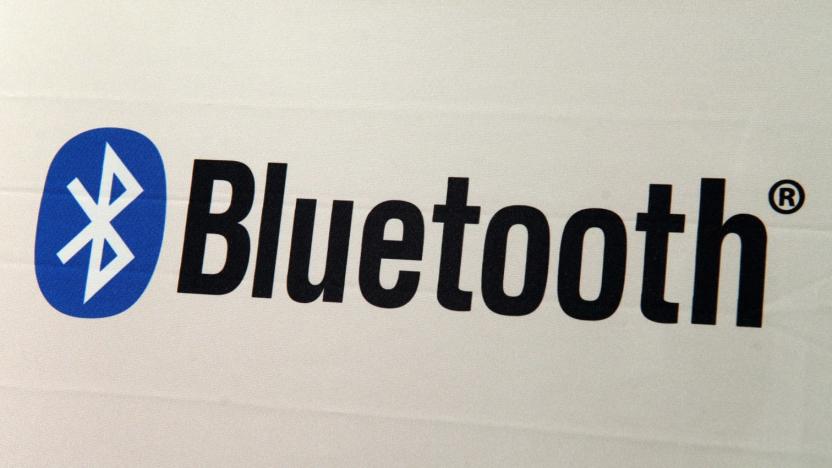
Some phones and laptops are vulnerable to 'BlueBorne' exploit
Armis security has identified a new vulnerability in computers and mobile devices that leaves them susceptible to attack via Bluetooth. The exploit, dubbed "BlueBorne," doesn't require user permission or to even pair with devices -- it can simply connect over the air and access networks or install malware. Armis previously alerted most affected parties back in April, but as of today, it's mostly Android devices that remain vulnerable to attack.
David Lumb09.12.2017
Chrome plays nicely with your MacBook Pro's Touch Bar
If you have one of the more recent MacBook Pro laptops with a Touch Bar, Google Chrome has long played second fiddle. Despite early hints of support, you've had to spend months surfing the old-fashioned way where Safari had the fancy (if sometimes gimmicky) context-specific commands. At last, Chrome is receiving equal treatment. Google has released Chrome 60, which officially introduces Touch Bar support. It's a familiar experience with navigation buttons and a hybrid address/search bar, but that's all you need if you just want to open a new tab without touching the trackpad or a keyboard shortcut.
Jon Fingas07.25.2017